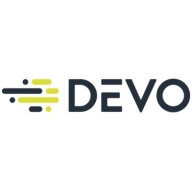

Both Devo and Seceon Open Threat Management Platform offer robust solutions in threat management. Seceon seems to have the upper hand thanks to its automation, cost-effectiveness, and smooth deployment.
Features: Devo is praised for real-time data analytics, scalability, and advanced threat detection. Seceon Open Threat Management Platform is commended for comprehensive threat management, ease of use, and automation capabilities.
Room for Improvement: Users suggest Devo enhance its integration capabilities, lower resource consumption, and improve user interface. Seceon users request better documentation, more frequent updates, and enhanced reporting tools.
Ease of Deployment and Customer Service: Devo users find the deployment straightforward but note occasional support complexities. Seceon is known for smooth deployment and responsive customer service.
Pricing and ROI: Devo's setup costs are high but offer long-term ROI through enhanced security. Seceon provides a more cost-effective initial setup and strong ROI for comprehensive threat management features.


Devo is the only cloud-native logging and security analytics platform that releases the full potential of all your data to empower bold, confident action when it matters most. Only the Devo platform delivers the powerful combination of real-time visibility, high-performance analytics, scalability, multitenancy, and low TCO crucial for monitoring and securing business operations as enterprises accelerate their shift to the cloud.
Seceon Open Threat Management Platform is a comprehensive cybersecurity solution that offers real-time threat detection, analysis, and response capabilities. It leverages advanced AI and machine learning algorithms to provide proactive threat hunting and automated incident response.
With its intuitive dashboard, users can gain complete visibility into their network, applications, and endpoints, enabling them to identify and mitigate potential risks effectively. The platform integrates seamlessly with existing security infrastructure, consolidating data from various sources for centralized monitoring and analysis.
Its threat intelligence feeds and behavioral analytics enable the identification of both known and unknown threats, ensuring comprehensive protection against advanced cyber attacks. Seceon Open Threat Management Platform empowers security teams with actionable insights, enabling them to prioritize and respond to threats swiftly. With its automated remediation capabilities, it minimizes the impact of attacks and reduces response time. The platform also offers customizable reporting and compliance management features, facilitating regulatory compliance and providing stakeholders with comprehensive security status updates.
Seceon Open Threat Management Platform is a robust and scalable solution that caters to the evolving cybersecurity needs of organizations across industries.
We monitor all Security Information and Event Management (SIEM) reviews to prevent fraudulent reviews and keep review quality high. We do not post reviews by company employees or direct competitors. We validate each review for authenticity via cross-reference with LinkedIn, and personal follow-up with the reviewer when necessary.